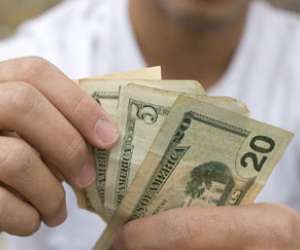Quiz
1. How many Nobel Prizes are currently awarded each year?
- 8.
- 10.
- 6.
2. When the Nobel Prize was established in 1901, there were only 5 awards. Which of these awards was added in 1968?
- Peace.
- Physics.
- Economics.
3. The Nobel Prize in Economics is really awarded by what institution?
- The World Bank.
- International Monetary Fund.
- Bank of Sweden.
4. Alfred Nobel, for whom the award is named, was a chemist and inventor. Which of the following is NOT true about Nobel?
5. This is the country where the Nobel Prizes are awarded and also where Alfred Nobel was born:
6. What do the winners of the Nobel Prizes receive?
- A diploma and money.
- A gold medal and money.
- Money, a diploma, and a gold medal.
7. The amount of prize money awarded in 1901 was 150,782 Swedish Crowns. In 2009, what amount will be awarded?
- 1,000,000.
- 10,000,000.
- 100,000,000.
8. The first woman to be awarded a Nobel Peace Prize was:
- Baroness Bertha von Suttner.
- Jane Addams.
- Mother Teresa
9. Which of the following is NOT true about Nobel Prizes?
- They can be withheld if there are no worthy candidates.
- They can be withheld when a world situation makes awarding the prizes impractical.
- They can be awarded posthumously.
10. Which of the following is NOT true?
- Journalist Carl von Ossietzky declined his 1935 peace prize because of the events of World War II.
- No awards were given from 1940–1942 because of World War II.
- Hitler issued a decree in 1937 that forbade Germans from accepting Nobel Prizes.
1. How many Nobel Prizes are currently awarded each year?
6.
2. When the Nobel Prize was established in 1901, there were only 5 awards. Which of these awards was added in 1968?
Economics.
3. The Nobel Prize in Economics is really awarded by what institution?
Bank of Sweden.
4. Alfred Nobel, for whom the award is named, was a chemist and inventor. Which of the following is NOT true about Nobel?
He discovered uranium.
5. This is the country where the Nobel Prizes are awarded and also where Alfred Nobel was born:
Sweden.
6. What do the winners of the Nobel Prizes receive?
Money, a diploma, and a gold medal.
7. The amount of prize money awarded in 1901 was 150,782 Swedish Crowns. In 2009, what amount will be awarded?
10,000,000.
8. The first woman to be awarded a Nobel Peace Prize was:
Jane Addams.
9. Which of the following is NOT true about Nobel Prizes?
They can be awarded posthumously.
10. Which of the following is NOT true?
Journalist Carl von Ossietzky declined his 1935 peace prize because of the events of World War II.





